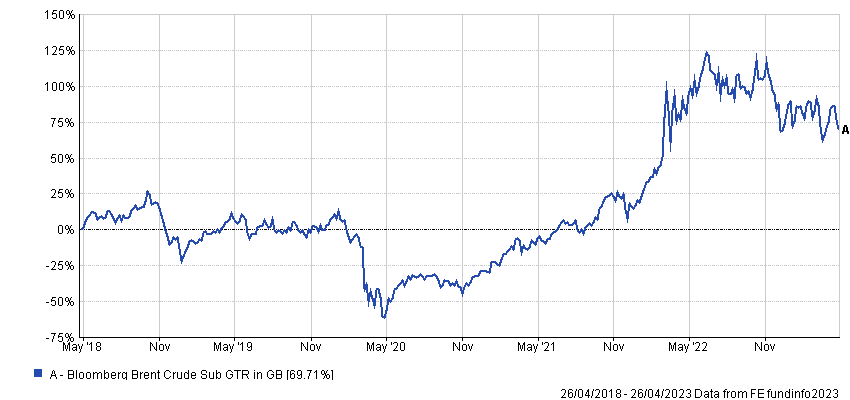The push for net zero may have inadvertently turned oil & gas companies into the “perfect capital allocators”, according to Niko de Walden, manager of the Royal London UK Dividend Growth fund.
De Walden assesses businesses against different criteria depending on where they are in their lifecycle. He said that the best strategy for a mature business operating in an industry that “generally earns less than the cost of capital on an enormous asset base” is to starve itself of investment to prop up cashflows.
And while energy companies haven’t always maintained this discipline in the past when oil & gas prices have spiked, De Walden said the decision has, to a large extent, now been taken out of their hands.
“Due to the need to arrest climate change, oil & gas companies are all now conducting the perfect capital allocation strategies for businesses of that type,” he explained.
“They’re not spending their hard-earned cashflows on new investments in oil & gas. Instead, they’re producing loads of cash, buying back stock and paying down debt, so none of them have any balance sheet issues.
“Because society has forced it upon them and won't allow them to invest, they're probably in the best shape they've ever been.”
Tom Nelson, manager of the Ninety One Global Natural Resources fund, agreed with de Walden to some extent.
“If under the new CEO, Shell came out at its capital markets day in June this year and said, ‘we're opening up three new exploration basins, in the Arctic, East Africa and the South China Sea’, London would be brought to a standstill by the protests,” he said.
“These companies really don't have a mandate to expand and grow.”
However, Nelson has in the past disputed claims that the push for net zero was behind the spike in the oil price, and while he accepted that it has helped improve the capital-allocation profile of European energy companies, he maintained his view that other factors have played a greater role in pushing this commodity higher.
Performance of index over 5yrs

Source: FE Analytics
For example, he pointed out that while European oil & gas companies are being pressured to restrict production, the opposite is happening in the US.
Last October, referring to the fact that six of the largest oil producers had made more than $100bn in profits in six months, President Joe Biden said: “They have a responsibility to act in the interest of their consumers, their community, and their country: to invest in America by increasing production and refining capacity.
“If they’re investing their profits at historic rates in their US operations, then America would be producing more oil today and prices would be down.”
Nelson added: “That's totally at odds with what BP, Shell and Total are being told here in Europe. Don't forget these businesses for the most part are genuinely multinational. We think of BP here in the UK or Exxon in the US, but they each operate in over 70 countries.”
The manager said that, in view of such inconsistency, he didn’t think taking a conservative approach to cashflows was unreasonable and that he has been urging portfolio holdings to “fix the roof while the sun is shining” by paying down debt
Nelson also said he finds it confusing that the oil & gas companies are being held up as the whipping boys of the environmental, social and governance (ESG) movement considering the enormous amounts of money they plan to invest in the push to net zero.
“If you accept the view that they're going to be huge participants in it, then surely we as citizens of this country should want companies like BP and Shell to be financially successful and solvent,” he added.
“You may say I am too much on one side of the argument, but I struggle to understand the ideology behind saying ‘let's just financially hobble these companies’, when we need them to change, and they can only change with capital.”
De Walden said that it is also worth considering that there is even less certainty about the return on investment in renewable infrastructure over the long term than there is in oil & gas companies’ traditional operations. He added that this is the only area where he has concerns about their capital-allocation policies.
“But in a way, it's a licence to operate socially,” he added. “You've got to be part of the solution; if not, you're part of the problem.”





